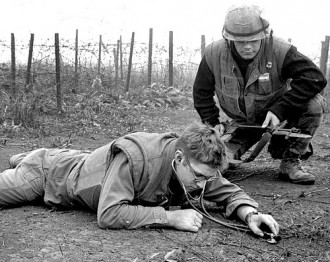
When scholars think about doing interviews with the media, we often imagine ourselves to be doing some kind of great public service–wherein we deign to come down from the ivory tower and share our wisdom and knowledge with naive, uninformed journalists and their massive, mostly ignorant, and fundamentally distracted masses. There is some truth to this conceit. Writers and producers often approach a story or a topic with a limited, fairly narrow frame of reference, and sometimes don’t even know the most basic facts or more general trends that are involved. I average maybe an interview a week, and find myself spending much of my time in these exchanges trying to get the writer or producer on the other end of the line to expand their scope, attend to some of the broader social forces or issues, or reframe their pieces in one way or the other. Sometimes this effort to frame and/or reorient stories works, sometimes it doesn’t (and rarely do we get credit either way).
But none of that is really the point of this post. The point of this post is that journalists often know a lot more than we give them credit for, and that we scholars–especially us sociologists–have got a lot more to gain from working with them than we usually realize. more...

